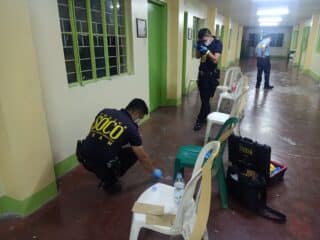BAGUIO CITY—The city government is resuming a campaign urging residents to boil their tap water, following a health report that shows an increase in the number of cases of waterborne diseases like amoebiasis.
Citing records of the Baguio health department (BHD), the National Statistical Coordination Board (NSCB) in the Cordillera said that the number of cases of waterborne diseases increased from 410 in 2005 to 2,082 in 2009 and then 1,938 in 2010.
“The diseases are more likely to increase during the rainy season, that is why we want to reiterate that residents should boil their water,” said Hermonico Guanzon, sanitation inspector of the BHD.
Guanzon said residents who use tap water for drinking and cooking suffered from waterborne diseases. “There are residents who still drink straight from the tap thinking that the [water] source [can never be] contaminated,” Guanzon said.
The most common waterborne diseases are amoebiasis, gastroenteritis, hepatitis A, leptospirosis and typhoid fever. The top cases treated in Baguio from 2005 to 2010 were gastroenteritis, typhoid fever and amoebiasis.
In 2009, the city’s hospitals treated 1,733 patients of gastroenteritis, an inflammation of the gastrointestinal tract which manifests as bouts of diarrhea, abdominal cramps, nausea and vomiting.
The NSCB said 437 cases of typhoid fever were recorded in 2010. It said the number of cases of amoebiasis (an intestinal infection) declined from 47 in 2005 to 29 in 2010. Only five cases of leptospirosis were reported in 2010.
The NSCB relied on data compiled from seven hospitals and 16 health centers in Baguio City.
Guanzon said the trend of waterborne illnesses in Baguio is alarming.
The city government and the Baguio Water District undertook a massive campaign in the 1970s and 1980s urging residents to boil their drinking water.
Since then, the city’s population grew from about 250,000 in 2000 to 301,926 in 2007, according to the latest census. The city planning and development office estimates that 40 percent of the city population are migrants.
The campaign urging residents to boil water inculcated the habit of storing water, which is rationed in Baguio.
Dr. Donna Tubera, head of the city epidemiology and surveillance unit, said prolonged storage of water could also attract microorganisms.
“Water stored in containers and drums is always open to contamination. Water should be used immediately to avoid contamination and spread of diseases,” Tubera said.


